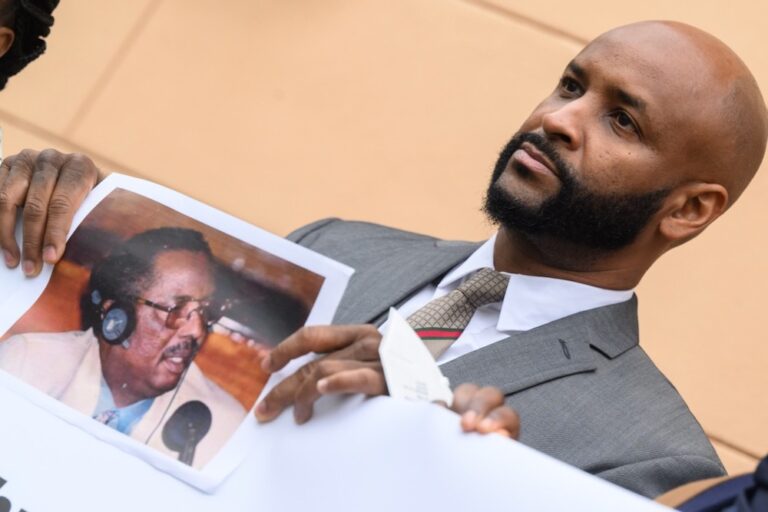The ECOWAS Court has dismissed objections raised by the Gambian government over its jurisdiction in the case of a journalist who was allegedly tortured in government custody.
(MFWA/IFEX) – On 30 June 2009, the Economic Community of West African States (ECOWAS) Community Court, hearing the case of torture brought by Gambian journalist Musa Saidykhan against operatives of the Gambia’s notorious National Intelligence Agency (NIA), dismissed preliminary objections raised by the Gambian government, the defendant in the case.
According to the Community Court, Saidykhan is a citizen of West Africa and the court is mandated by the ECOWAS protocol to hear human rights violation cases brought before it.
On the subject of legal remedies, the three-member panel overruled a claim by the Gambian government that the plaintiff (Saidykhan) had failed to exhaust the local remedies by referencing ECOWAS protocol authorizing it to hear cases by citizens of member states without having to exhaust remedies in local national courts.
In November 2007, the Media Foundation for West Africa (MFWA) brought the suit on behalf of Saidykhan to seek justice for him and bring relief to many other Gambian journalists who had suffered similar fates and had escaped into exile for fear of repression.
Shola Egbeyinka, a member of Saidykhan’s legal team, hailed the court’s ruling, saying it was a boost for media freedom and would go a long way to protecting journalists in the West African sub-region.
The Gambian government, which had previously boycotted the proceedings of the court on two occasions, was represented in court by Marie Saine-Firdaus, the country’s Attorney General.
Saidykhan, editor-in-chief of the banned bi-weekly newspaper “The Independent”, based in Banjul, was arrested at his home on the night of 27 March 2006 by a combined force of armed soldiers and policemen and taken to the notoriously feared NIA headquarters. He was held incommunicado for 22 days without charge. During this period he was tortured until he lost consciousness. The continuous torture left scars on his back, legs, arms and right hand, which was broken in three places.
The court fixed 28 October 2009 as the date for the commencement of the trial.


